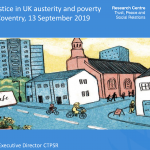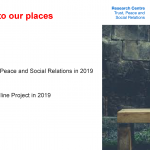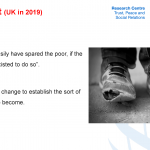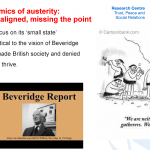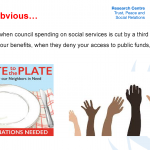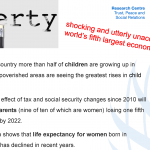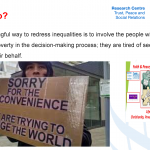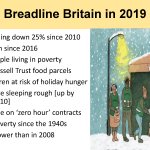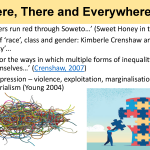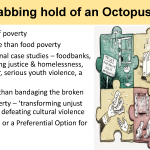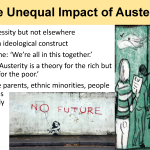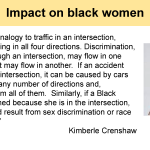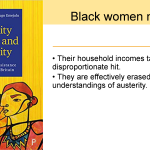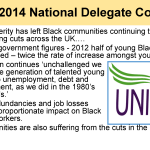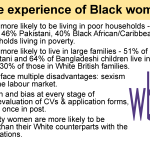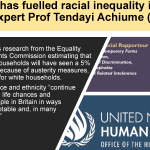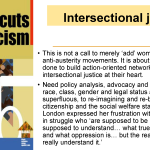Transforming structural injustice
On 13th September 2019, over 50 people gathered at Coventry University for the Life on the Breadline workshop on transforming structural injustice
What are the different forms of poverty in the UK and how do they relate to each other? How can the Church be an effective agent for change in an age of austerity? How can the Bible and Christian tradition enable us to challenge structural injustice? This participatory workshop reflected on how the Church can work to transform structural injustice.
Mike Hardy, Executive Director of the Centre for Trust, Peace and Social Relations opened the workshop with a reflection on his sadness at poverty in the UK – he reflected that austerity could have spared the poor if there had been political will.
Mike called for action: for empathy and understanding in policy, for evidence-based research, and to engage with people experiencing poverty.
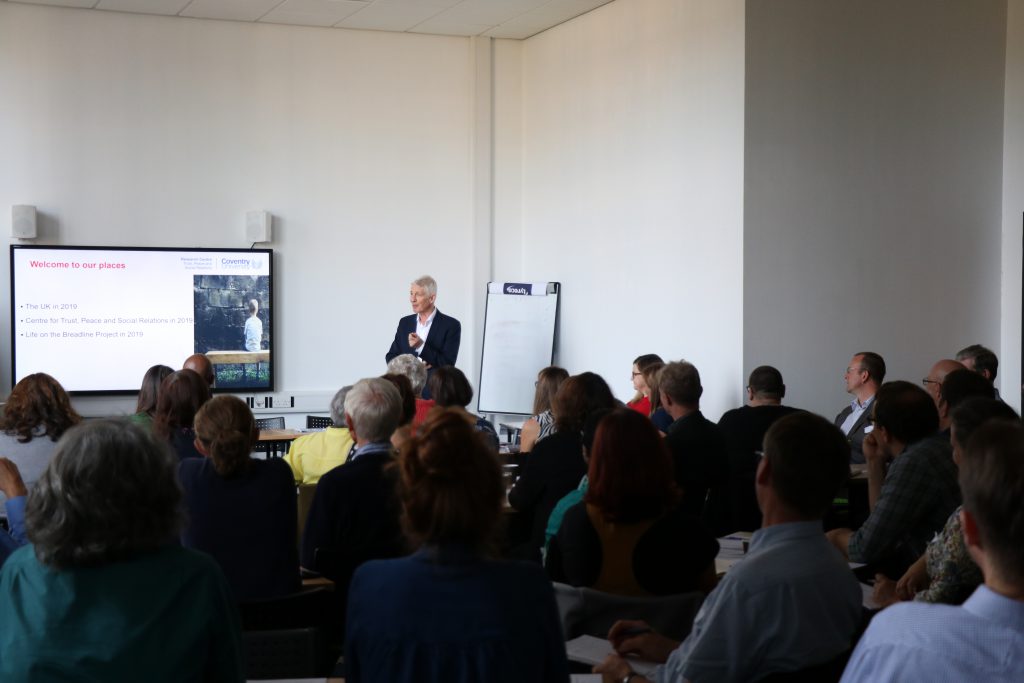
Chris Shannahan – the complexity of poverty and austerity
Robert Beckford – Black women’s experience of austerity
Members of the Life on the Breadline team, Chris Shannahan and Robert Beckford, spoke about intersectionality and poverty – how poverty has many strands which combine and then have a greater impact on people’s lives and on inequality.
Chris questioned how people of faith should best respond to poverty – caring is invaluable but what more needs to be done, and how?
Robert focussed on the relationship between class, gender and austerity, particularly the disproportional impact of austerity upon Black women’s lives. He argued that we need to reconstitute the problem and have a response that has justice as its heart.
Group discussion: What different forms does poverty take where you work, and how do you respond to them?
Forms of poverty discussed included:
– Rough sleeping
– Food banks
– In-work poverty and low pay
– Poverty of options and blocked aspirations
– Fuel poverty
Responses discussed included:
– Influencing policy and engaging with politicians
– Helping people through Universal Credit
– Night shelters
– Holiday lunch clubs
– Rights and advocacy
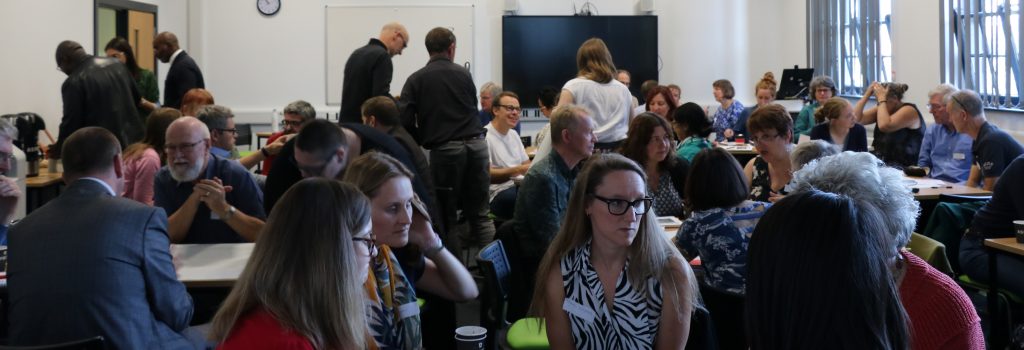
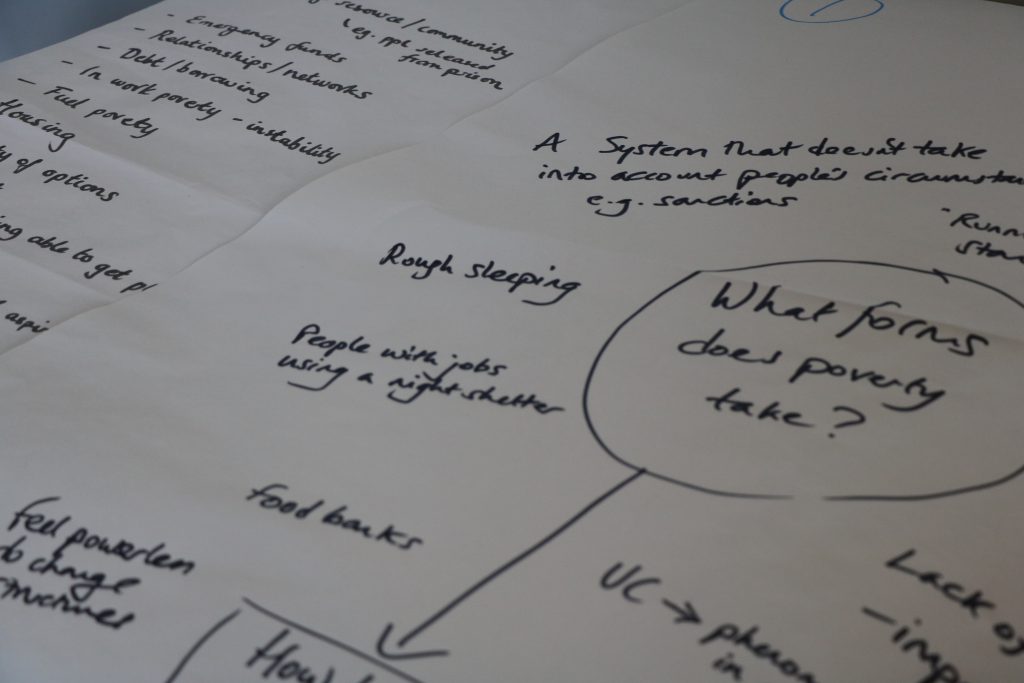
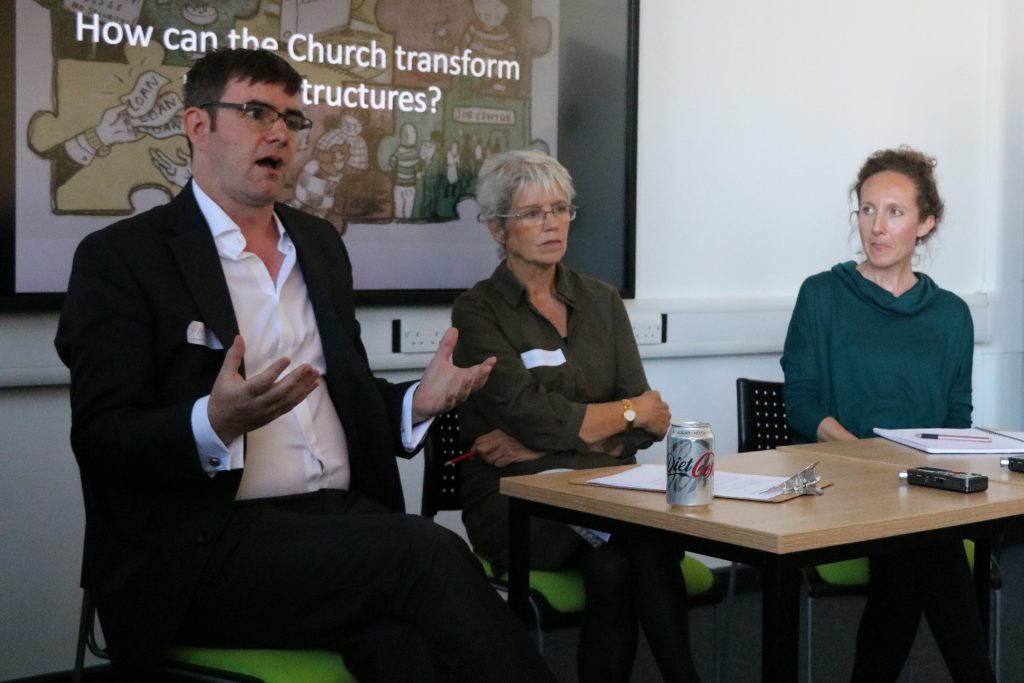
Our three panelists shared their reflections on the discussion questions. The panelists were:
– Paul Morrison, Joint Public Issues Team
– Helen Gale, B30 Foodbank
– Heather Buckingham, Trussell Trust
Brief summaries of the panelist’s reflections are shared below, with audio recordings of their reflections
Panel – Paul Morrison
Panel – Helen Gale
Panel – Heather Buckingham
What different forms does poverty take where you work, and how do you respond to them?
Paul: working with data on poverty does not always link to people’s real lives. The example of Mama’s Republic in South London shows how people can be given agency.
Helen: at the B30 Foodbank there are multiple forms of poverty – food, financial, family and emotional, housing, and churches can experience a poverty of imagination.
Heather: 80% of Trussell Trust foodbank users are experiencing severe food poverty. The main drivers of people using foodbanks are low income, unstable employment, high cost of living, and benefits. The Trussell Trust response involves emergency food provision, signposting and a ‘more than food’ approach, and data collection and research.
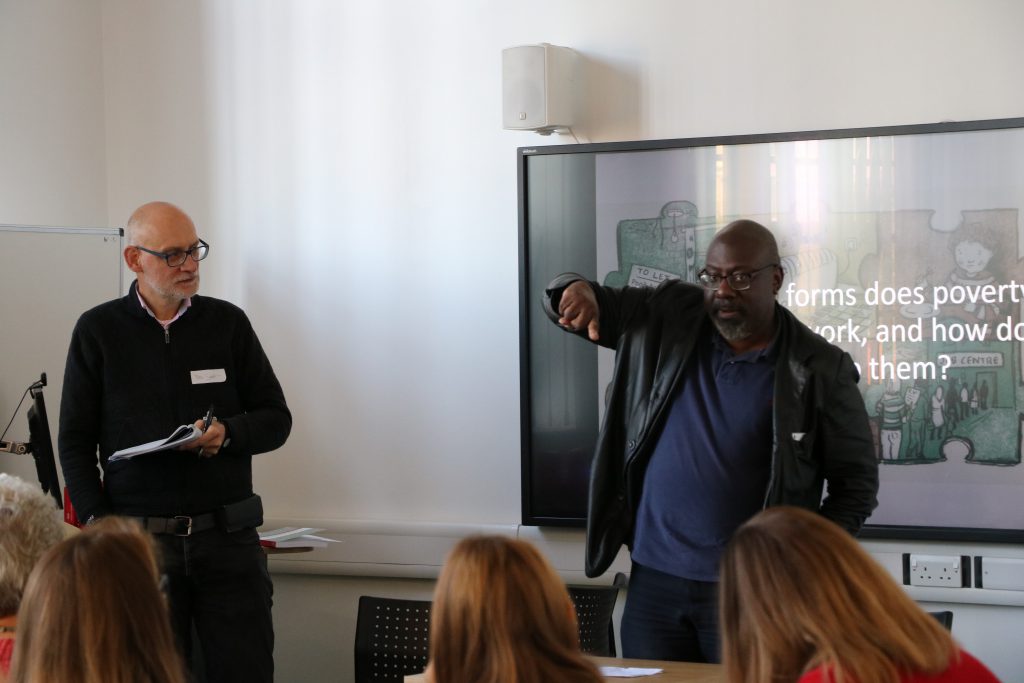
Anthony Reddie – The Bible and structural injustice
Anthony Reddie spoke about the Bible and structural injustice, in particular how we can interpret parables differently. Anthony led a reflection on the Parable of the Talents, questioning how each of the servants felt about being given different amounts of money – listen in full through the audio clip.
He questioned if the parable is ironic because the Master cannot be God (as he says those who have little will have this taken away). Anthony questioned why we talk about the undeserving poor, but not the undeserving rich, and how austerity can be seen as a way to moralise behaviour.
Group discussion: What resources can we find in Christian tradition/the Bible to help us transform unjust structures?
Resources discussed included:
– Acts 2: share everything in common
– Varying Church traditions of addressing inequality
– Everyone welcome in the Kingdom of God
– Equality – parts of the body all needed
– Misuse of Scripture e.g. ‘the poor are always with us’
– Stewardship
– Loving your neighbour
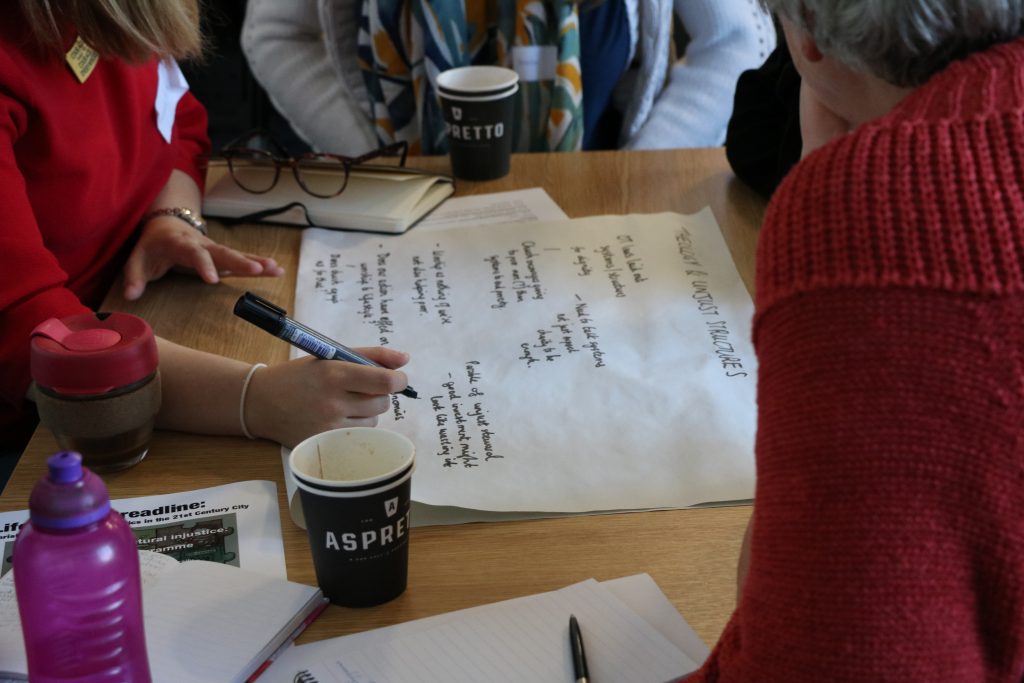
Panel – Heather Buckingham
Panel – Paul Morrison
Panel – Anthony Reddie
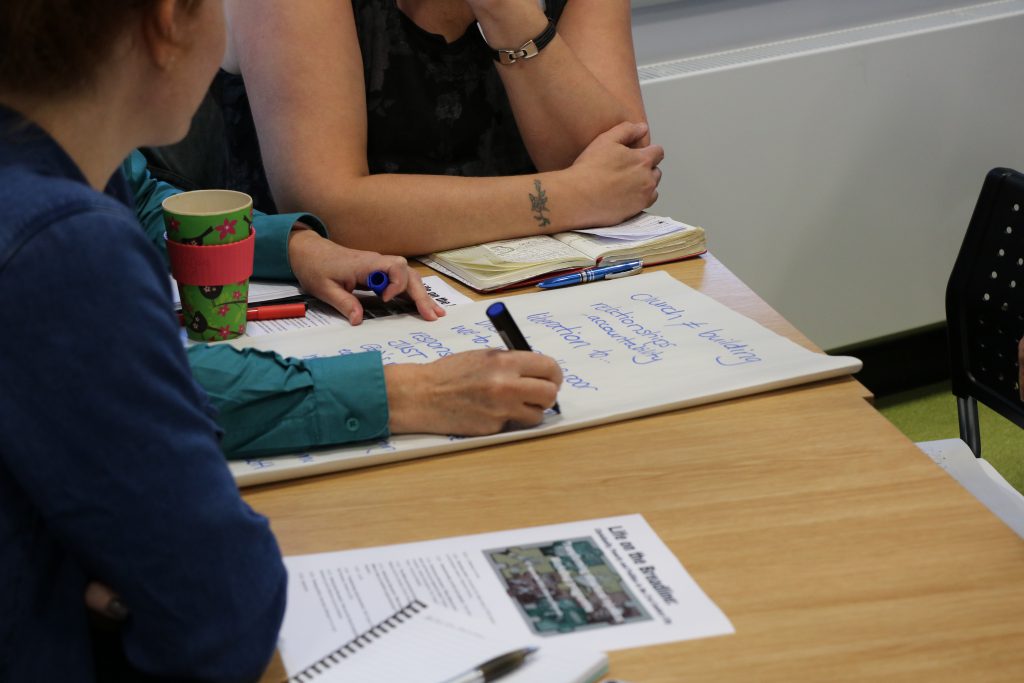
What resources can we find in Christian tradition/the Bible to help us transform unjust structures?
Helen: in churches, for Biblical teaching on poverty, people often mention the Feeding of the 5,000 which has no mention of means testing – the approach is help first and ask questions later. Christian tradition is about standing up for the poor and underprivileged, and there is also anger and vision in the Bible at injustice.
Heather: there are loads of resources! One is a focus on love – love can stretch imaginations, love needs to understand the problem and circumstances, and love is structural, political, economic, and relational.
Paul: there is diversity in Biblical resources depending upon where people position themselves in stories, for example as the victim or helper in the Parable of the Good Samaritan. Contrary to popular norms, there is much in the Bible that challenges capitalism.
Anthony: sometimes we need to take the Bible literally – this is often not the case in relation to economics. However, in using resources there can be a danger that we end up speaking for people.
Niall Cooper and Stef Benstead from Church Action on Poverty spoke about how the Church can work towards transforming unjust structures. Stef shared her experiences as a disabled person and activist, and how people can address individual areas of policy which together can make bigger changes.
Niall shared his thoughts on how Christians relate to others with different views on poverty and austerity – listen in full through the audio clip below.
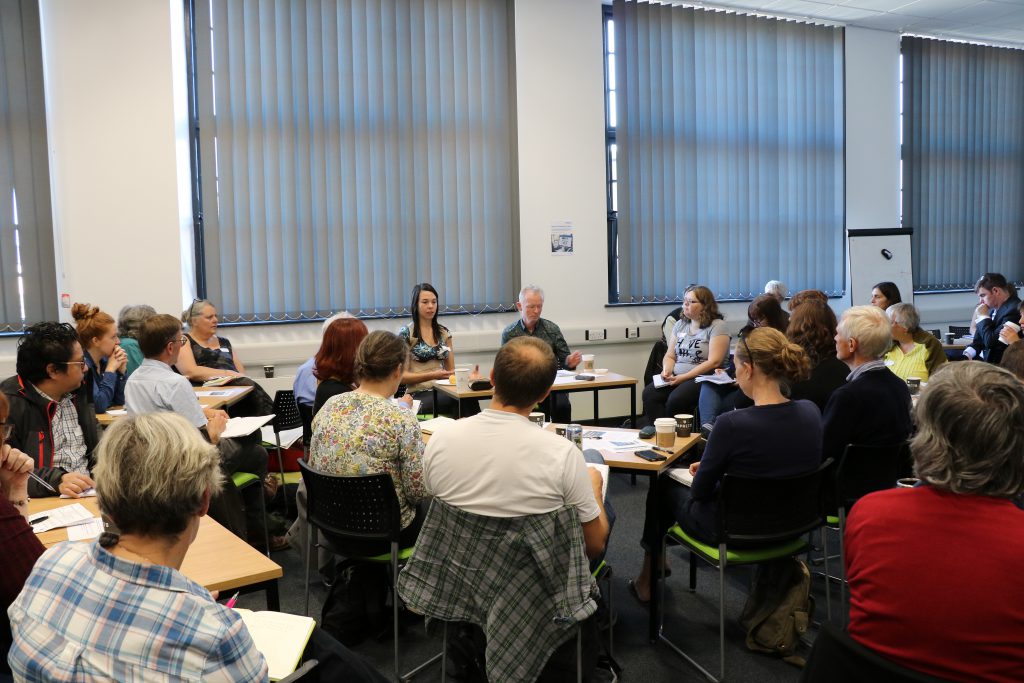
The Food Power Network is one way in which Church Action on Poverty engages with the structural causes of food poverty.
Niall Cooper and Stef Benstead, Church Action on Poverty – how the Church can transform unjust structures
Group discussion: How can the Church transform unjust structures?
Discussions on transforming unjust structures included:
– Having boldness to say ‘unpopular’ things
– Justin Welby on Wonga – top level public influence, and providing alternatives as well as speaking out against injustice
– Working together and collaborating
– Church as advocacy with marginalised people
– Get out of silos
– Involvement in Poverty Truth Commissions
– Being actively involved in politics and work across the political spectrum
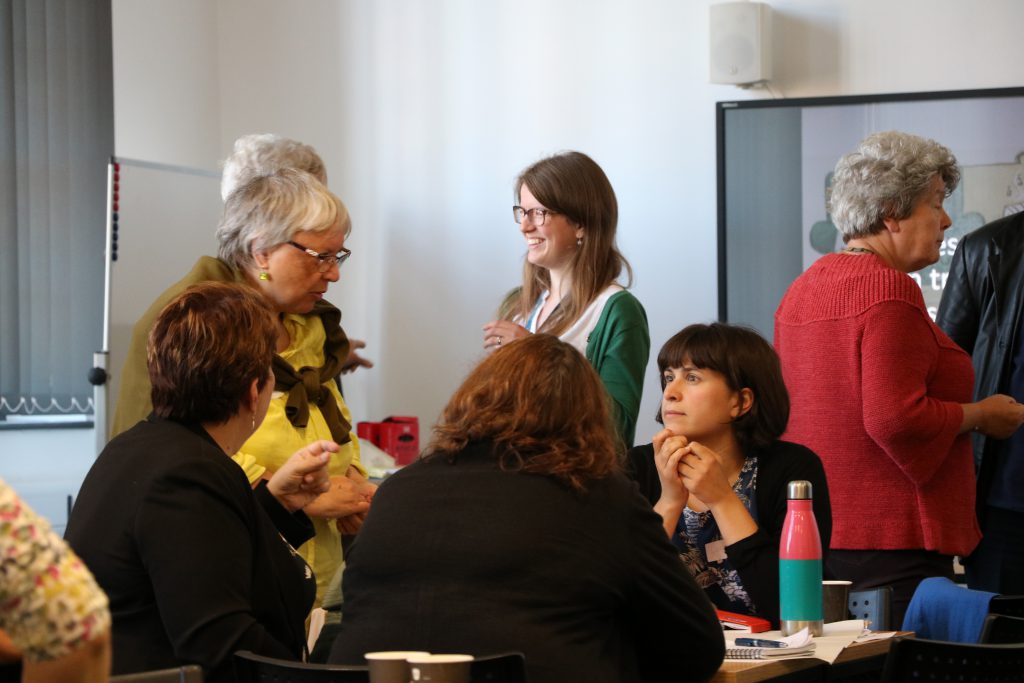
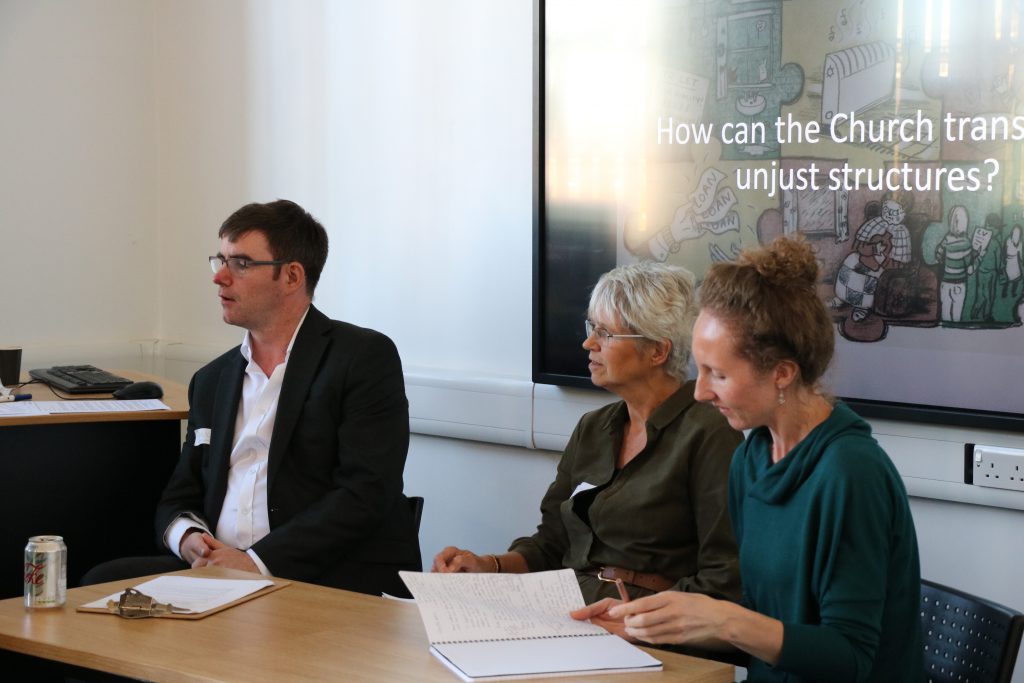
Panel – Heather Buckingham
Panel – Paul Morrison
How can the Church transform unjust structures?
Paul: the question is how to shift perceptions so that ‘ridiculous’ policies become common sense. Churches are uniquely placed to engage with people and gain understanding to influence policy.
Heather: responses will vary, but they need to include listening, being with people, and having depth of understanding. There needs to be repentance – acknowledgement that as a society we are letting one another down – and then working on pathways to action.
Helen: the Church can transform unjust structures through engaging with:
– academic research
– myth busting training
– using social media to highlight injustice
– learning from other churches and transforming oneself
– working with politicians but maintaining independence and being careful of becoming institutionalised
– increasing capacity to be imaginative
– embracing others who think similarly but do not believe in God and being proactively inclusive
The workshop closed with participants reflecting on individual and collective actions that they would take away from the day:
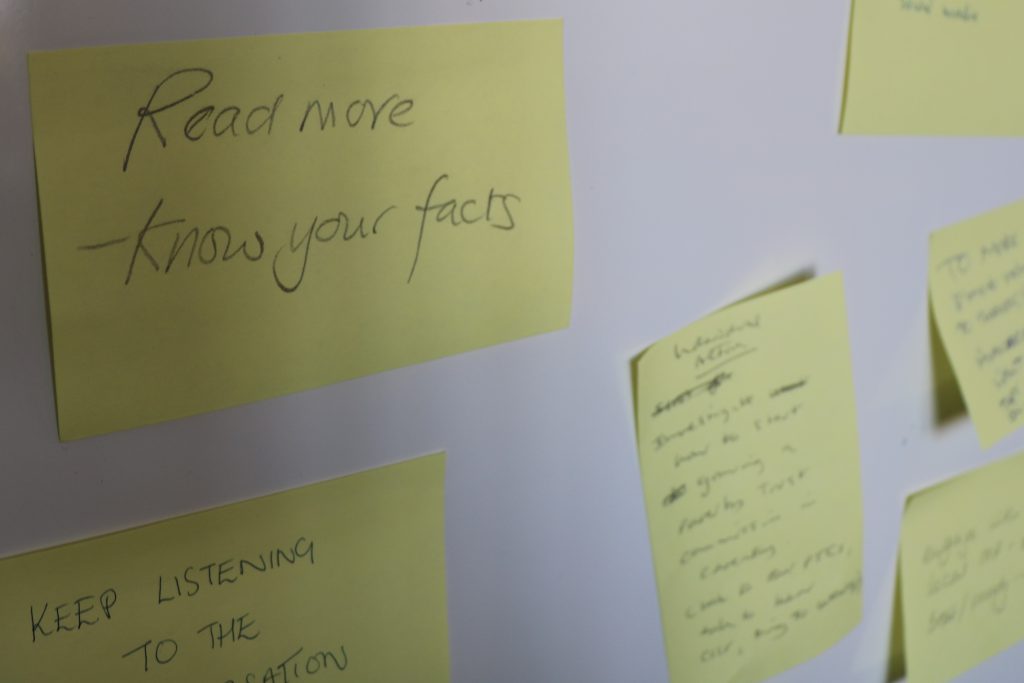
“Read more – know your facts”
“Keep listening”
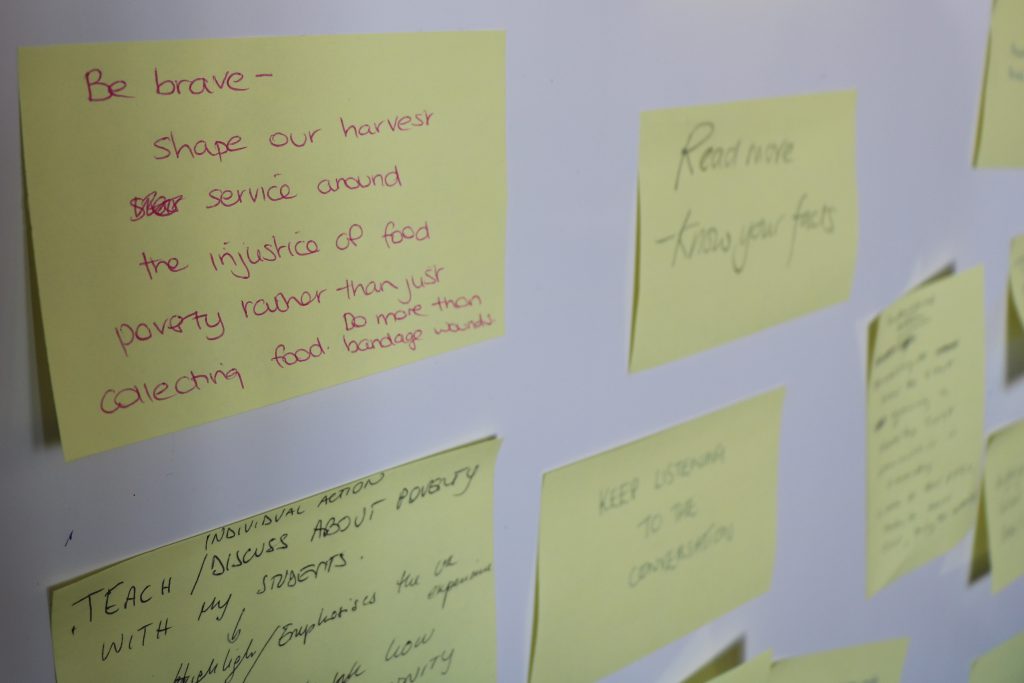
“Be brave – shape our harvest service around the injustice of food poverty rather than just collecting food”
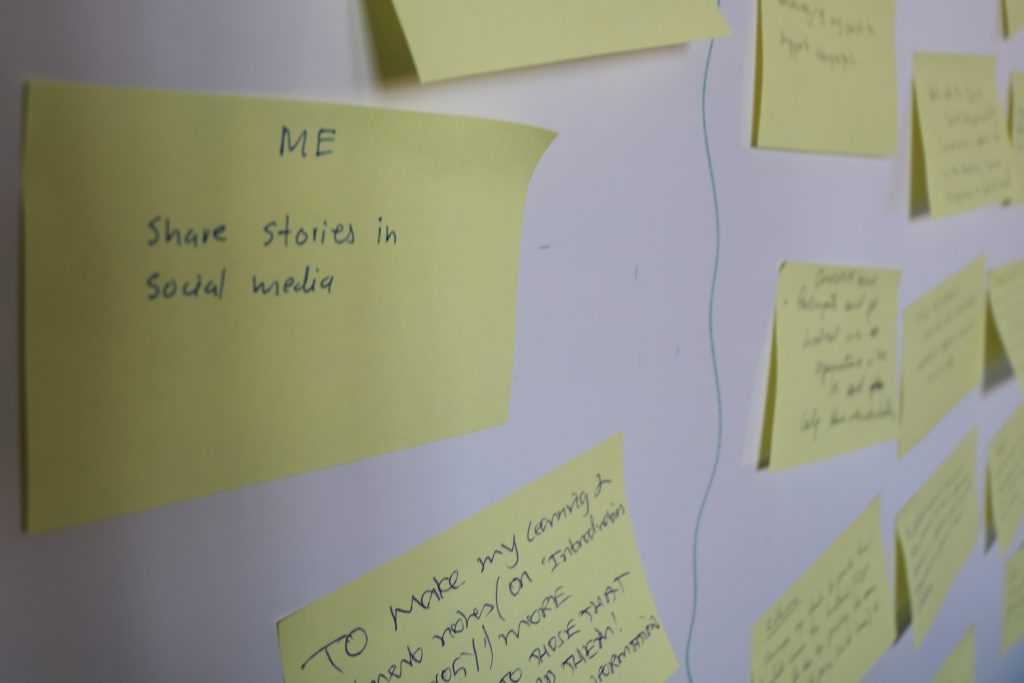
“Share stories in social media”
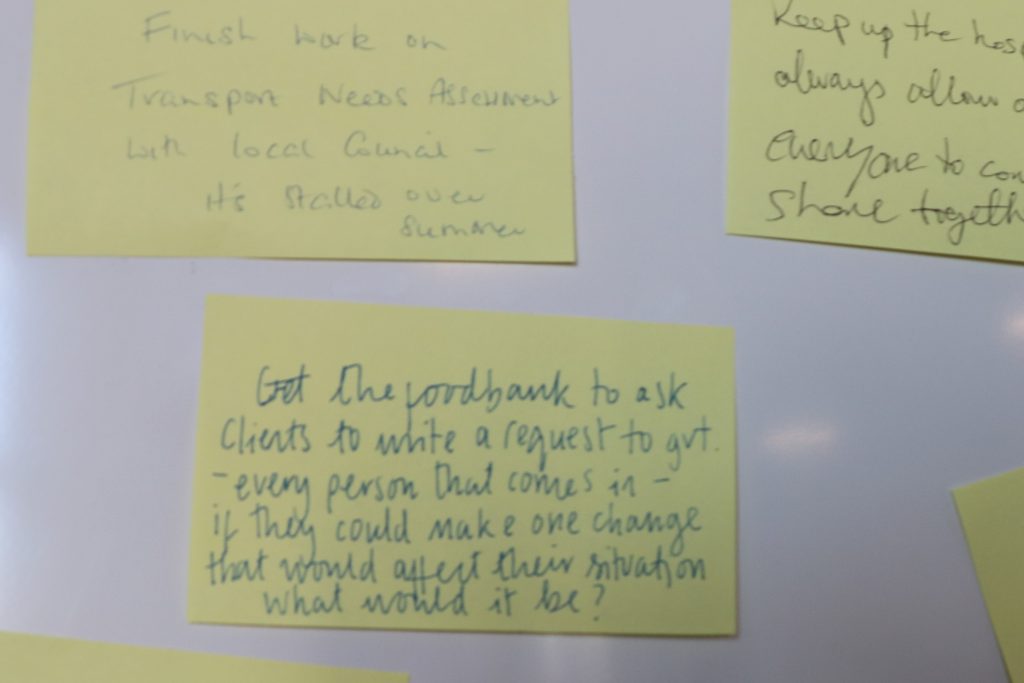
“Get the foodbank to ask clients to write a request to government – if they could make one change that would affect their situation what would it be?”
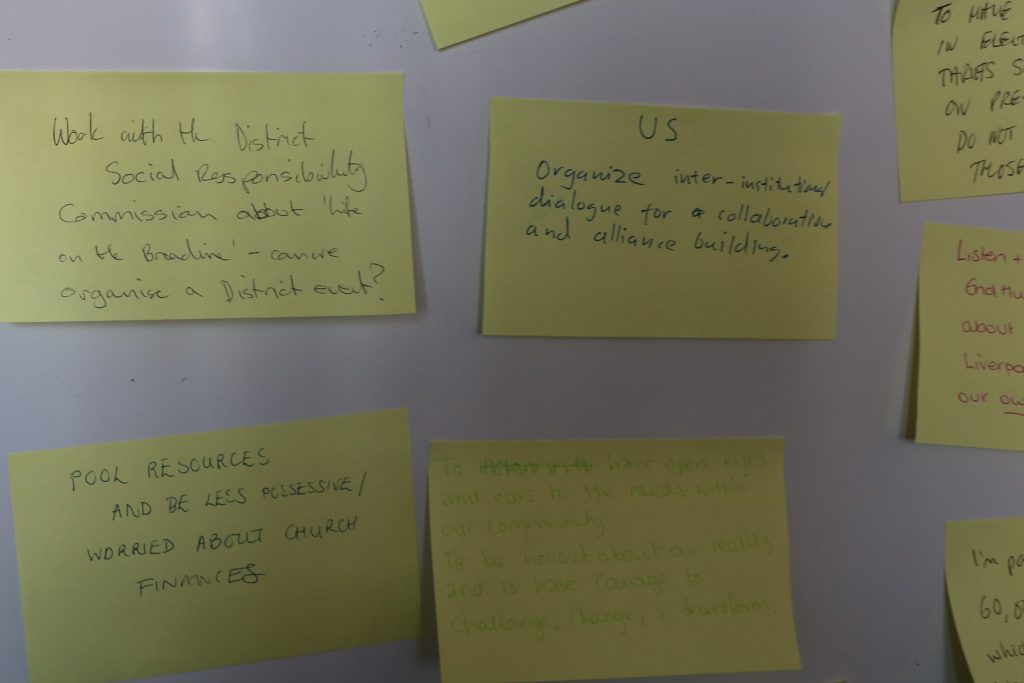
“Organise inter-institutional dialogue for a collaborative and alliance building”
“Pool resources and be less possessive/worried about church finances”
What did workshop participants think of the day?
Michaela Youngson, Former President of the Methodist Conference
Naomi Maynard, Together Liverpool and Feeding Liverpool

Could you share your feedback on these resources?
We'd love to hear your feedback on these resources. To share your thoughts please click here to complete this short form.
